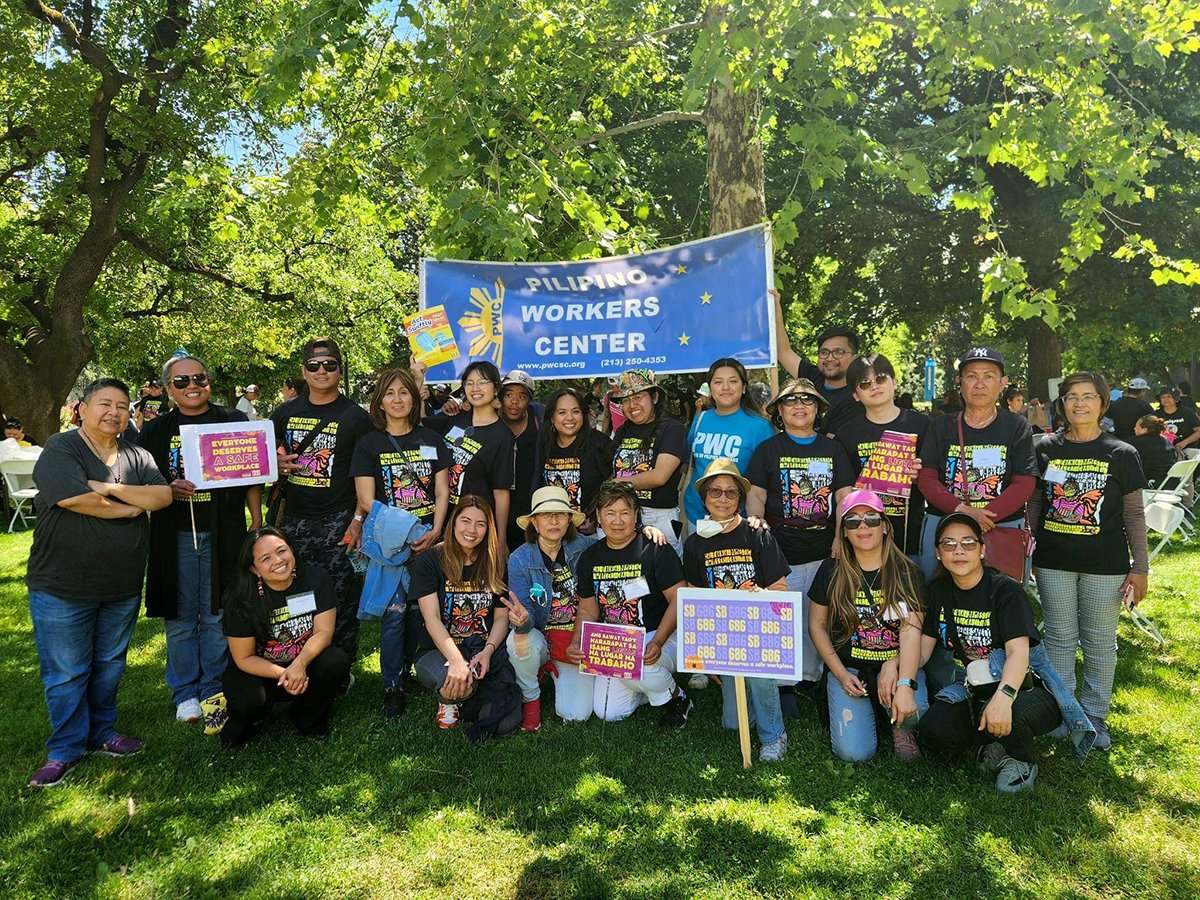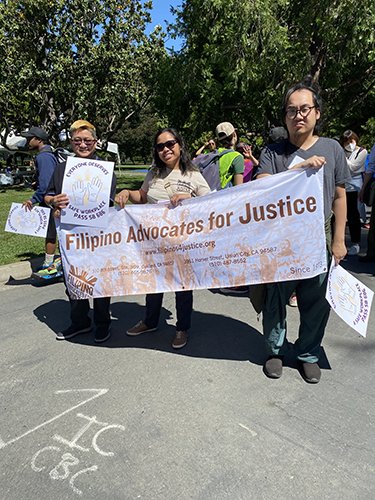Fighting to Protect California’s Domestic Workers
/A Filipina caregiver (Source: PXHere/Creative Commons license)
Ate Nelia is also a caregiver, working in a private home caring for an 80+ year old woman with dementia. Her patient’s daughter is paranoid about cleanliness and insists on using strong disinfectants for the kitchen and toilet. These disinfectants have caused Nelia terrible bouts of allergy from chemical ingredients. When she asked the daughter to buy organic products, the daughter refused and threatened to find another caregiver who wasn’t “too sensitive.”
Kuya Roger is a caregiver for a physically disabled man who weighs over 350 lbs and requires assistance in getting in and out of bed and transferring to his wheelchair. Kuya Roger has been asking his employer to get a Hoyer Lift to aid in the transfer but, unfortunately, the patient’s limited resources make buying a lift impossible.
The abovementioned situations are some of the problems that California Senate Bill 686 hopes to solve. For far too long, domestic workers have been excluded from the state’s worker protection laws. Nannies, housekeepers, homecare workers and others in the work homeplace who provide vital care and support for families, people we entrust with our loved ones and homes, have been marginalized and endangered because they are excluded from basic health and safety protections provided the Cal/OSHA.
This exclusion has its roots in the legacy of slavery and marginalization of Black workers in the U.S., as ‘women’s work’ primarily done by Black, Indigenous and immigrants of color, domestic work continues to lack respect and rights due to racism, sexism, ableism and xenophobia.
Advocates of SB 686 mobilized on May 17, 2023.
SB 686 seeks to give Cal/OSHA the authority to develop official health and safety guidelines for employers and requires employers to adhere to all applicable health and safety regulations. The bill also builds upon the successful state outreach program that ensures workers and employers know their rights while providing resources for employees with compliance. SB 686 essentially
• Eliminates the exclusion of privately paid “household domestic service” employees from California’s Occupational Safety and Health Act (Cal/OSHA).
• Establishes a financial and technical assistance program through the Division of Occupational Safety and Health (DOSH) to assist household domestic service employers with legal compliance.
• Expands the existing Domestic Worker and Employer Outreach and Education Program to include health and safety outreach and education for domestic service employees and employers.
Filipino Advocates for Justice spearhead the lobbying efforts for SB 686
Why is this bill significant to the Filipino American population? A significant number of Filipino home care workers (HCW) are at the frontlines of assisted living facilities, residential care facilities (RCFEs) and personal home care attendants for chronically ill, differently abled people and the elderly.
The pandemic has demonstrated that the lack of state regulations has denied health and safety protections for these home care workers, putting them at greater risk. Therefore SB 686 will afford our Fil-Am HCWs education and protection they so desperately need.
The push for the protection of domestic workers has been a three-year fight. In 2020, the California Domestic Workers Coalition (CDWC) managed to pass SB 1257 (authored by Sen. Elena Durazo) through the state Assembly and Senate only to have it vetoed by Gov. Newsom on the grounds that domestic employers do not have the ability to comply.
Instead, SB 321 was amended to create voluntary health and safety guidelines for the domestic work industry. In 2022, a Cal/OSHA committee composed of domestic workers, domestic employer and health experts developed the first-ever voluntary health and safety guidelines. This year, the guidelines were published and now CDWC is introducing legislation to permanently end the exclusion and, furthermore, provide funding for education and implementation.
Last June 28, 2023, the Assembly Committee on Labor and Employment voted unanimously to advance SB 686. Of further significance is the allocation of $35 million in funding for the Domestic Worker and Employer Education and Outreach Program or DWEOP from the state’s annual budget on a permanent basis.
This funding will allow community-based organizations to expand education and to do outreach and training for domestic workers to ensure that their rights and their occupational safety are upheld. It will also allow for the creation of a program focused on providing technical and financial assistance for low-resourced employers.
As an organizer working with Filipino caregivers in the Bay Area, I feel that SB 686 is long overdue. Domestic workers are workers in every sense of the word. What makes them different from those who work in a factory, restaurant or office? Especially in the era of “work from home,” the home is a workplace. Domestic workers deserve the same health and safety protections afforded to other workers.
On August 29, join us in demanding for the passage of SB 686 in Sacramento, California. CDWC is organizing an event to mobilize support for the bill. RSVP: bit.ly/SB686ACTION
Susan V. Tagle is a worker-organizer with Filipino Advocates for Justice.
More from Susan Tagle






